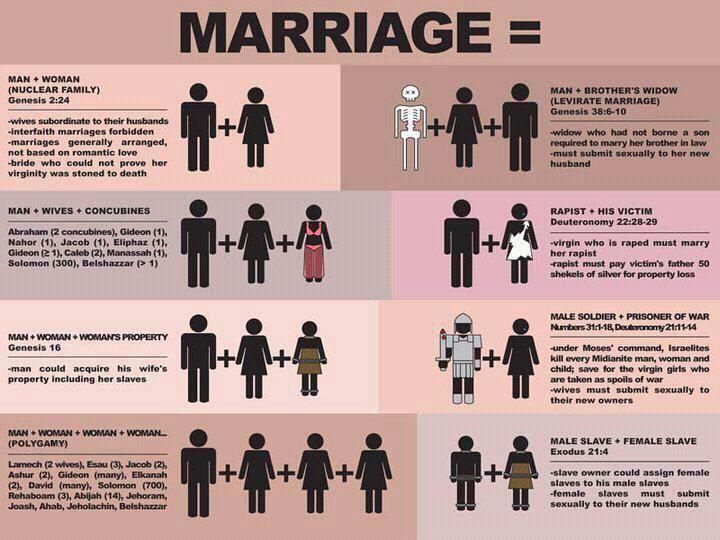To give into the religious argument is to give into nixing all public accommodation laws.
That is incorrect. What the RFRA does is apply a standard of strict scrutiny to claims that the state must override religious objections. It doesn't "nix all public accommodation laws", it declares that if you are going to enforce one over religious objections, you have to be able to demonstrate a compelling government interest that cannot be achieved by less invasive means.
Take, for example, the original public accommodation laws associated with the Civil Rights movement. Blacks were not unable to get dinner at particular restaurants or stay in particular hotels - they were banned by a
state enforced system from accessing entire industries. The burden placed on blacks by Jim Crow was systemic and universal in the South. That burden justified overriding religious objections. There is no such systemic / universal denial of access to homosexuals today, although if there were, I would agree they have a case. If an African American wanted to stay in a hotel in the south in the 1950s, too bad. If a gay person wants a wedding photographer today, there is an entire google search page full of entries, and if one doesn't want to do it, dial the next one on the list. That burden (having to call another provider on your cell phone) does not, in my opinion, generally justify overriding individual freedom of conscience, but there are potential examples that people on these boards have brought up where I have agreed it could be so - it would be up to the Court.
Labeling a belief or ideology as "religion" does not automatically elevate it to a higher standing.
Actually legally it does, however, broadly, we are attempting to defend everyone's right to conscience. If my business doesn't do gay weddings and that offends you, you should be
just as free to refuse to do business with
me. That's what you call a
libertarian position.
Providing food to homosexuals who will then use it at their wedding does not violate the christian religion.
That's interesting. I had no idea that you were a mind reader, and capable of accessing the inner thoughts and beliefs of selected individuals half a globe away from you. Can you do this au natural, or do you need a giant metal sphere, like Professor X?
You're still completely free to run a business as bigoted as you choose if you wish to make it a private one. However, if you want to open your business to the public, you have to open your business to the public. Business owners that wish to do that greatly benefit from the structure that society provides for that business to do commerce, and requiring a few tiny conditions for that is not unreasonable.
"Violate your religion or we will destroy you" is not a tiny condition, and is only in very narrowly defined circumstances reasonable.
And as far as divorce, maybe we could all take you guys a little more seriously if christians weren't leading the country in divorce rates. Why don't you guys get your own house in order first?
:shrug: you'll get no argument from me that the church has fallen down on the divorce issue (the stats you are addressing, however have several problematic issues).
However,
A: in this country we consider the individual to be autonomous, rather than being issued identity, rights and privileges only inasmuch as they fall into an particular group. Among the ideologies who most strongly hold this position are a group of folks who go by the name of "libertarians". A "Libertarian" would tell you that to claim that a wedding photographer cannot be sincerely religious in New York because a couple got divorced in Ohio is a nonsensical argument, and that the New York individuals religious liberties and freedom of conscience are in no way reduced by the divorce of the Ohio couple. This is thus what you call a case of the
whataboutism (long a favorite wriggle of those attempting to defend actions that are difficult to defend, such as using the coercive power of the State to force people to violate their religious beliefs), or the
tu quoque fallacy.
B: Something else Libertarians would tell you is that it is wrong to bring the violence of the state to bear on people over thought crime - that an individual's right to live within the tenets of their faith and enjoy their freedom of conscience are limited only to the degree that their doing so harms others, and that when that does
not harm others, then the State has no right to override it.
...But, then, that's just what
Libertarians, the kind of people who believe in people being left to live their lives as they see fit so long as they don't harm others, would say. And you don't have any truck with them, now, do you?


